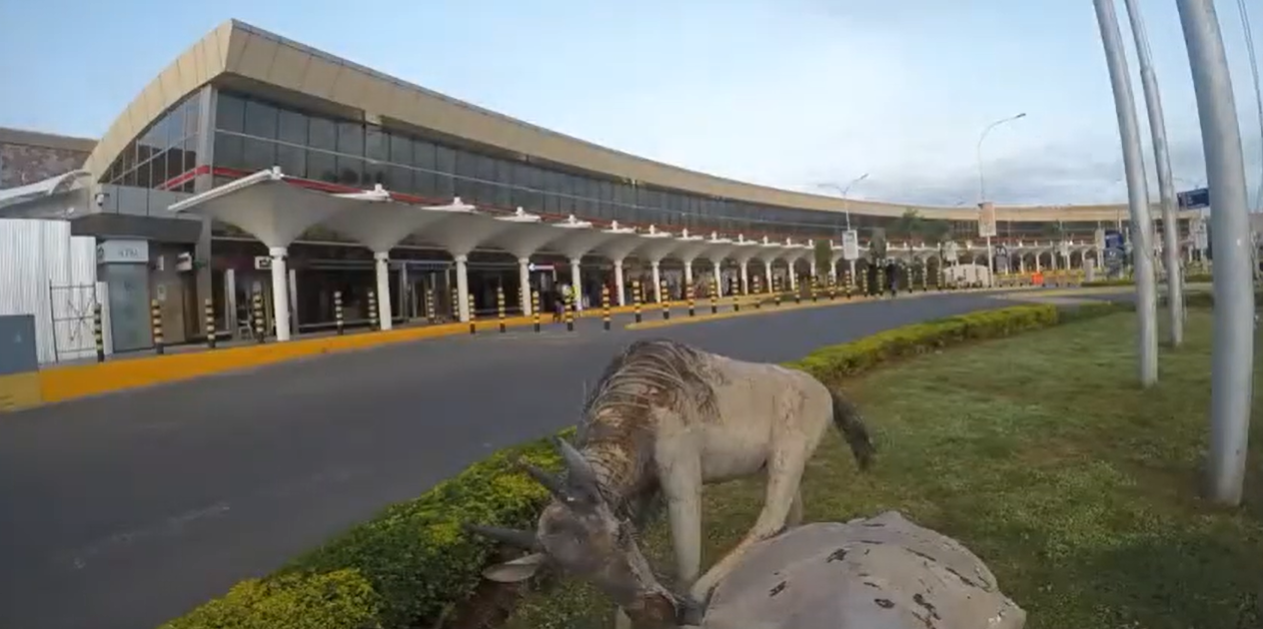

Kenya is initiating new protocols in the tourism industry before lifting covid-19 restrictions including air travel and tourism.
The tourism and travel sector has undoubtedly became one of the worst hit globally following the outbreak of COVID-19 pandemic.
In a new guides booklet tittled ‘health and safety protocals for the new norm’ The ministry of tourism noted that the industry needs to ensure it adapts to the currently evolving scenarios to ensure that it recovers much faster.
Among the protocols to be adhered to by both providers and tourists alike include; Staff Preparedness to ensure service provision meets World Health Organization guidelines and Kenya’s Ministry of Health measures aimed at preventing the spread of covid-19, Ensure a safe experience for visitors, guests and service providers, Rebuilding trust and confidence hence increase and sustain demand for holiday and investment in the destination and Implementing enabling policies and guidelines in order to provide a step by step process of a careful reopening and restart of business in the tourism sector.
In Kenya, tourism remains the third-largest contributor to GDP after agriculture and manufacturing. For instance, the number of international visitor arrivals increased by 0.4% to 2,035.4 thousand in 2019 whereas tourism earnings grew by 3.9% from Kshs 157.4 billion in 2018 to Kshs 163.6 billion in 2019 according to the Kenya National Bureau of Statistics (KNBS) Economic Survey Report of 2020.
In the booklet the ministry pledged to provide alignment and consistency, to ensure the safety of travelers and workforces in Kenya as the sector recovers from COVID-19.
Meanwhile, the Tourism Regulatory Authority will oversight compliance to the protocols in collaboration with the other government agencies including the Ministry of Health and the tourism private sector through their associations and individual enterprise as part of the new health and safety protocols.
The new directive also requires acquisition of licenses and certificate, as well as permit or stickers signifying compliance with the provision of this protocols to be considered for reopening from necessary national and county authorities.
Other new regulations which will be part of the new safety protocals include adoption and implemention of documented Standard Operating Procedures (SOPs) for handling suspected Covid-19 cases and ensuring patient confidentially and prevent stigmatization of the affected Persons.
The ministry of wildlife and tourism in its recent statement also encouraged the development, establishment, and revision of existing technologies to enable automation such as contactless registration and contactless payments where possible.
Apart from these new regulations targeting the tourism industry, stakeholders will still have to abide by existing directives including wearing face masks, social distancing, and maintaining good hygiene.
The tourism sector is currently one of the hardest-hit by the outbreak of COVID-19.
Travel restrictions, flight cancellations, and frequency reduction have significantly diminished the supply of both domestic and international services while demand continues to retract.
more recommended stories
 In New Geopolitical Play, Trump Eyes Somaliland to Block China and Defeat Houthi
In New Geopolitical Play, Trump Eyes Somaliland to Block China and Defeat HouthiHARGEISA – April 12, 2025 —.
 A Celebration, a Surprise, and a Strategic Masterstroke: How Somaliland’s Irro Quietly Redirected Lasanod’s Political Hopes
A Celebration, a Surprise, and a Strategic Masterstroke: How Somaliland’s Irro Quietly Redirected Lasanod’s Political HopesBy Mohammed Yasin Omar LASANOD, SOMALILAND.
 Somaliland Parliament: Any Consequences from PM’s Visit Are Somalia’s Responsibility
Somaliland Parliament: Any Consequences from PM’s Visit Are Somalia’s ResponsibilityHARGEISA, April 12, 2025 — The.
 From Berbera to Washington: Somaliland’s Strategic Pitch for U.S. Support
From Berbera to Washington: Somaliland’s Strategic Pitch for U.S. SupportIn a comprehensive interview with The.

